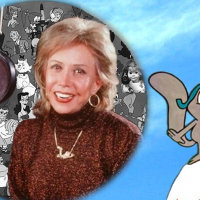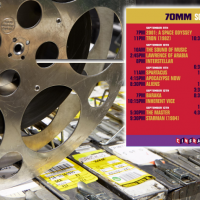
OK, let me get this out of the way: I love movies. More specifically, I love the history of movies. I eat that stuff up.
So, yeah, I also love the Oscar ceremonies. I have been watching Oscar telecasts for as long as I can remember. Sure, we have the Golden Globes, the Independent Spirit Awards, Producers Guild Awards, Screen Actors Guild Awards, the Critics’ Choice Awards, etc. But the Oscar is the coveted prize that all movie professionals pursue.
I enjoy seeing which pros will show up – not just the ones nominated but those you don’t expect, those who have a weighty history but aren’t up for any awards that year. I keep tally of which films have scored across all categories. I look for the speeches that might bring me to tears, and the inevitable race where the winner doesn’t get played off by the band.
As a movie lover, I am enthralled by the themed montages: It’s fun to see the cavalcades of film history through brief clips and to try to identify as many as I can (in what amounts to a movie lover’s lightning round). If I’m lucky there will be more than one montage, not including the In Memoriam segment where I lament those I knew have died, and those whose passing I somehow missed.
When it comes to those compilations, sometimes I feel like I’m alone in enjoying and looking forward to them. After the ceremonies, there is always an outcry from various factions that those tributes are expendable and that the pace of the show would move more briskly without them. This mindset invariably includes the suggestion to eliminate certain less-prestigious awards which the Oscar show’s producers believe is yet another reason for the show’s downward-spiraling ratings.
Lately, the folks at the Academy of Motion Picture Arts and Sciences have been throwing ideas at the wall in hopes that they stick. Last year, they proposed a Most Popular Film category. When that was announced, it became immediately apparent the idea hadn’t been thought through: People both inside and outside the industry were puzzled about how exactly this would work, and the plan was quickly shelved. One would assume that a film’s popular success is by its box office tallies, but would the Academy really give an award to the film that raked in the most cash? Then there are other considerations that might be just as (if not more) impactful: Sometimes, popular film informs and influences avenues like culture and technology; surely that would be a determining factor, and one that is not as easy to quantify.
Then, the show’s producers thought that another solution centered on choosing the right host, but past gambles haven’t raked in the expected flood of viewership. How about Seth McFarlane, who has a number of successful animated shows and might bring in a more youthful audience? Hmm, turned out to be too caustic. I know, let’s pair James Franco and Anne Hathaway, younger actors who could certainly bring in throngs tired of seeing old fogies! Nice try, but no one bothered to determine if the two had any chemistry, and that year’s show didn’t result in a ratings bonanza. And while Kevin Hart seemed like a good choice, one has to wonder whose job was it to vet him and determine if there might be issues based on his past homophobic comments, even if he had tried to make amends before and after he was announced?
So, the decision for the 91st Academy Awards is to have no host at all, but apparently that wasn’t enough. It was time to hide technical categories during the commercials. The reasoning seems to be that the nominees don’t warrant the attention; after all, they aren’t usually wearing Givinchy, Stella McCartney, or Oscar de la Renta (and if anyone thinks I’m dissing those designers, I’m not) or are famous enough to be hounded by paparazzi and swooned over by starry-eyed fans. After that idea splattered on the aforementioned wall, it quickly oozed to the ground following the outcries from heavy hitters including George Clooney, Spike Lee, and Brad Pitt.
Sadly, the Academy has lost its way. It’s no longer about commemorating the history of film, and of each division awarding their own. It’s about ratings, ratings, ratings: bringing in the advertising dollars demanded by the network involved and getting viewers away from those other shows they might not want to DVR.
I, for one, have had it. This is not only an insult to those hard working professionals — yes, they are well paid, but that’s beside the point — it’s also a slap in the face to people like me who love movies and revel in the fun of tributes and montages as well as to actually see which folks in front of AND behind the camera brought some of the current year’s films to life. Too long? Maybe it’s not long enough, but hey, that’s just me being a movie lover.
Yeah, it’s tough when what was an only child now has competition from numerous siblings. There was a time where the Oscars’ ceremonies were the only ones being broadcast. The Golden Globes started broadcasting locally in 1964, but that was suspended from 1968-74 after controversy arose over “[misleading] the public as to how the winners were determined.” They allegedly threatened to name another winner if nominees did not attend the ceremony.
Wow — imagine the uproar if the Oscars had done that: You better make an appearance or we’ll give the award to someone who did! How prestigious.
Now, every movie association is broadcasting their own show, and by the time the Oscars roll around, awards fatigue has set in. That being said, I believe the producers for the Oscars show can learn a few lessons from all those other awards programs (and some dedicated viewers like me). Let me offer a few suggestions to get the Oscar ceremony away from the goal of mainly making money for advertisers and — paraphrasing the dad of the aforementioned Stella McCartney — get back to where it once belonged.
Move the ceremonies to cable: Bypass syndication or commercial cable stations as they would fall into the same ad revenue traps as the major broadcast networks. I can’t speak for the premium pay stations (e.g., HBO, Showtime, Starz) but I wouldn’t be surprised if they would be eager to broadcast the Oscars. Sure they care about viewership as much as the commercial networks, but they have experience in bringing excitement to event programs, and just maybe this would increase the number of their subscribers. It might also be just a matter of time before the Oscars ceremonies appear on a service like Hulu, Netflix, or Amazon Prime. Focus on making a great show and not target demographics.
Have nominees confirm understanding the ground rules for speeches if they win: One of the biggest complaints is that the winners’ speeches go on for too long. I believe it’s a given for the male and female actors that, being who they are, they can be forgiven for going on a bit too long — they are “movie stars,” after all. But for the technical categories, there might be a group of people who win for one movie, such as Sound Editing or Visual Effects. If the producers think they’re already communicating how to handle that, then they’ve been consistently failing miserably. It seems every year when this happens one person rattles on and on and when a second person steps up to the mic the conductor strikes up the band — and the ones who didn’t get to speak are visibly upset.
The most successful group speeches appear to be ones where it’s obvious that one person alone has been designated the speaker, or where there is a handoff between each of the group members in rapid succession, like a well-rehearsed act. Nominees need to be instructed to take one of those approaches over winging it, and the show’s staff should confirm which approach those nominees have chosen. The audience will thank you for your brevity, and the band will thank you for not making them look like the bad guys.
Eliminate the stodginess factor: Way back before the Oscars were televised, the show was like many of the awards shows today, where folks were seated at tables, fed, and imbibed. When I watch those other awards shows, I get a sense of looseness and fun, and the table format is more conducive to industry folks moving about and enjoying themselves. The Oscar ceremony audience is instead seated as if they’re watching a movie, not reveling with their peers in having creating them. Freeing attendees from that format fosters more of an air of unpredictability, instead of watching well-dressed stars trapped in a seat between other well-dressed stars trapped in a seat. It’s supposed to be a party, so get them out of those theater seats and let them party on, Wayne/Garth!
Create online content that will drive audiences to want to tune in: For the reviled categories that aren’t about the majors — Best Documentary Short and Best Live Action Short — show the nominated films online and have some kind of contest where the winner gets his or her two seconds of fame during the ceremony. One advantage to this approach is how it would benefit the nominated filmmakers: People would actually be able to see their works, instead of having these films exist in a black hole that’s a generally a mystery to anyone outside of the voting bodies.
Something similar could be done for some of the technical categories. It doesn’t have to be a contest: Instead of the all-too-brief snippets that we sometimes get during the show, line up advertisers to fund and present behind the scenes shorts for each of the films nominated for a particular category. How was that shot achieved? What makes for a successfully edited film? (They could give an example, perhaps humorous, of how this can go terribly awry in the wrong hands.) What if a particular film was scored with Polish waltzes instead of a symphonic score? Creating content accessed online prior to the broadcast might not only be entertaining, it might give folks more to discuss on social media and provide more of an incentive to tune in. Bonus DVD extras before there is even a DVD.
Modernize the female category names: Many of the other awards shows have done this. I mean, c’mon, really – it’s time the Academy got rid of the term “actress.” It’s fraught with connotations that are simply outdated. Example: I’ve heard of a seamstress — exclusively a female who sews – but never a seamster until I looked it up, and there is such a word, for a person who sews. (I don’t think a female teamster is a teamstress, but I digress.) Note the definition doesn’t say a male or a man who sews — it says “person.” Academy, take a cue from the other award shows (if not from #metoo): Replace the word “Actress” with “Female Actor.”
While I’m at it, here’s food for thought: The ideal might be to eventually eliminate the gender altogether to where we have only one Best Actor and only one Best Supporting Actor regardless of whether it is a male or female. That day is probably a long ways off, if it ever happens at all. As it is now, however, with the numbers of women behind the scenes why should it be different for those in front of the camera? Shouldn’t there be categories like Male Director AND Female Director? How about Male Cinematographer AND Female Cinematographer? I’m not advocating that the non-acting categories be broken up by gender — quite the opposite, and I think my point is clear.
I don’t work in the film industry, but maybe ideas like these might provide discussions within the Academy and their show’s producers that go beyond the previous and current problematic concepts that have been proven unpopular and unsuccessful. Celebrate — not berate.
©2019 Mike Tiano. All Rights Reserved.
- Steve McKnight and GayC/DC: Breaking the Rainbow Ceiling - April 22, 2024
- How the Seattle Cinerama Was Reborn as SIFF Cinema Downtown - April 12, 2024
- Why the Beatles Were the First Global Cultural Phenomenon - February 16, 2024




